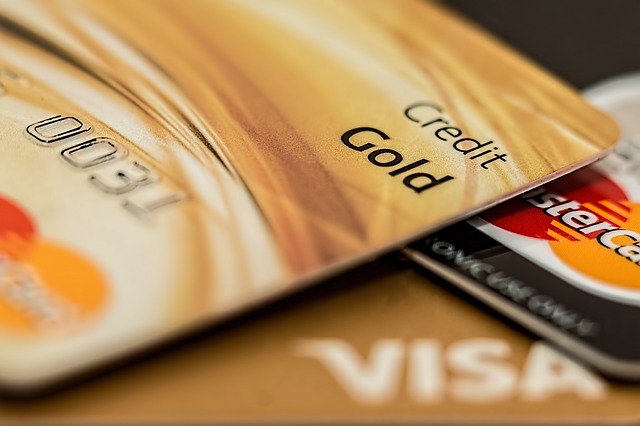10 Habits That Are Keeping You From Getting Rich
40 Best DIY Gift Ideas for Any Occasion
50 Gorgeous Handcrafted Wreaths on Etsy
10 Festive Christmas Simmer Pot Recipes
40 Dollar Store DIY Fall DÉcor Ideas
40 Easy Rotisserie Chicken Shortcut Meals
60 Christmas Cookies for Every Taste
Gift Guides for Everyone on Your List
55 Best Harry Potter Party Hacks
Make the most of fall and the holiday season with our best décor ideas, recipes, gift ideas & more.
SEe What's Trending
Learn More ›
Clean everything in your home from your clothes and sheets to your shower curtain, vents - even the inside of your washing machine - with simple short-cuts using all-natural cleaning products.
Available in paperback and
Kindle. editions.
Get the cleaning hacks book
Natural Cleaning
Home DÉcor
Christmas
Thanksgiving
Halloween
Fall
Recipes
Top Categories
More About Me ›
Hi, I'm Sarah! I share all the best recipes, lifestyle tips, décor ideas & more to help you live your best life, naturally. Come for meal ideas and life hacks, and stay for updates and community.
sarah blooms!
welcome to
Gift Guides

More smart money tips that will help you gain financial freedom:
20 Ways to Score the Best Deals at Aldi
24 Easy Ways to Trick Yourself into Saving Money
25 Money Hacks That’ll Make You Financially Fit for Life
25 Surprising Ways You Are Wasting Money Without Realizing It
Pin for later!

Habits That Are Keeping You From Getting Rich
1. Not following a budget.
Most people don’t have a formal budget, but they’re so important if you want to be financially successful. It’s easy to waste thousands of dollars every year on frivolous purchases, so you need to know exactly where your money is going if you want it to work for you.
Add up all of your basic expenses like rent or mortgage, utilities, car payments, phone, TV – any expenses you need to pay every month. See if you can trim some of these expenses like your cell phone and TV.
Once you know how much money needs to go out every month, you know how much you can spend on essentials and wants and how much you can save.
To make budgeting easier, use a free app or website like EveryDollar, which will help you track expenses and make informed financial decisions, so you can pay off debt, save money, and start building wealth.

2. Wasting money.
If you don’t have a budget, chances are, you’re wasting money. You want to receive the optimal benefit from the money you earn – not let it just run through your fingers.
Make sure you know exactly where your money is going and that it’s not being wasted on unnecessary expenses like late fees, high interest, billing errors, frivolous purchases, unused memberships, and more.
Check your bills – companies make mistakes, and you don’t want to pay for their errors.
Check out 25 Surprising Ways You Are Wasting Money Without Realizing It for more ways you may be wasting your hard-earned cash and how to fix it.

3. Living paycheck to paycheck.
It’s estimated that 75% of working adults live paycheck to paycheck, but that’s a good way to ensure that you never manage to accumulate wealth.
If you’re maxing out every paycheck, you’re not going to have money left over to save, which puts you at greater risk of going in debt, since you won’t have the funds to cover unplanned expenses.
Go through your budget, find where you might be wasting money, and make changes accordingly. Then, save the difference. Experts recommend you save at least 15% to 20% of your earnings.
Check out 24 Ways to Trick Yourself into Saving Money to learn some painless techniques to start saving more money today!
4. Depending on one source of income.
Too many people find a good job and are content to limit themselves to that one source of income. Don’t get me wrong, the simple life is perfectly fine, but if you have big dreams, you need to expand your thinking.
It is said that most millionaires have at least 7 streams of income.
Think of how difficult it can be nowadays just to make ends meet on one income. Why should you struggle through life when a little hustling now can set you up financially for life??
Start a side hustle, set up passive income streams, invest (see below). Do whatever you can to bring more money in, so you have more to work with.
Not only will this increase your income – along with your debt repayment and saving power – but if you ever lose your primary job, your other income streams can cushion the fallout for you and your family.
Many people are even able to quit their day jobs to work full-time on their side hustles, or retire early and travel full-time!

5. Borrowing too much.
The more money you borrow, the more you’ll be paying (i.e. wasting money) on interest. The more debt you accrue, the harder it will be to keep up with payments and the less money you’ll have to work with if most of your paycheck is going toward paying your bills.
If you rack up charges on high-interest credit cards, you could be paying for years on items you don’t really care about or want anymore (see “Making Impulse Buys” below).
Credit card debt is a slippery slope, and it’s so easy to get in over your head. With high interest rates, you can make loads of payments and still see little change in your balance.
On average, American households had credit card debt totaling around $16,425 in 2017. At an average interest rate of 18.76%, the average household is paying around $1,292 each year in credit card interest.
Making minimum payments of $300, it would take over 10 years to repay the debt with interest payments totaling $21,000!
You’ll never be able to build wealth wasting that much money! That’s why you need to pay off those debts – especially high interest credit card debts – as quickly as possible.

6. Making impulse buys.
According to a CreditCards.com survey, 5 out of 6 Americans admit to buying items on impulse. These purchases are especially problematic because when you buy on impulse, you often end up with things you don’t really want or need and, thereby, wasting your money.
You’re also more apt to spend more money or buy an unreliable item, since you haven’t taken the time to do your research before buying.
So what can you do? Depending on how much you like to spend money, you may be feeling powerless when it comes to impulse spending, but you can actually beat this bad habit with a little discipline and motivation and some smart strategies.
Always prepare a list when you go shopping, and stick to it!
Follow the 30-Day Rule. If you want to buy something non-essential, such as the latest iPhone, video game, clothes, etc., but aren’t sure you should spend the money, wait awhile – like 30 days – before purchasing it.
Chances are, if you wait that long, you won’t want the product anymore, and you won’t waste money on something you don’t really need. Even waiting as little as 24 hours may be enough for you to conquer the impulse to spend your hard earned cash.

7. Choosing only safe investments.
The stock market is often confusing for the average person, which makes many people avoid it altogether.
But while it is a riskier investment strategy than saving cash or investing in CDs and bonds, it can also give you the greatest returns – if you’re willing to make a long-term investment and ride out the highs and lows.
Here’s an example. Say you can save $500 a month over 30 years. If you keep that money in a regular savings account earning 1% per year, you’ll end up with about $209,000. If you use that money to invest in bonds averaging 3% per year, you’ll have around $285,000.
But if you put your money in stocks with an average 8% annual return – just below the market average – your savings will grow to $567,000! See how advantageous stocks can be??
8. Investing in trends.
The key to investing is to buy when prices are low and cash in when they’re high, but most people invest too late to really cash in.
This is going to be especially true with trends. By the time an asset is touted as “the next big thing,” it’s already too late to make a good profit.
To make bank on investments, you need to be in it for the long term.
Successful investors are those who realize an asset may not provide an immediate return and are willing to give it time to appreciate in value.

9. Ignoring big life changes.
It can be easy to get caught up in life when you have monumental life changes like getting married, having a child, starting a new job, or the death of a parent, but these huge life changes are when you need to change your financial plans accordingly.
Whenever you go through one of these big life events, take the time to evaluate your finances and make any necessary changes as soon as possible – add your new spouse to your will, open a 529 college savings plan, etc.

10. Being too frugal.
Believe it or not, being super frugal can actually work against you!
Yes, you should cut expenses to make sure you’re not wasting money on unnecessary expenses, but if you obsess over price while ignoring value, you may pay more in the long run.
The low price tag on that cheap laptop or pair of shoes may seem like a good buy, but that’s not always the case.
Better quality items may cost more up front but last years longer than their cheap counterparts – and actually end up saving you money.
Make sure you look at the big picture when it comes to managing your money.
Do your homework and research products before you make any big purchases to ensure you get the biggest bang for your buck.
Now that you’re armed with these 10 Habits That Are Preventing You From Getting Rich, you can start making changes to your financial plan and get back on track to living your dream life.
What do you think about these 10 Habits That Are Preventing You From Getting Rich? Can you think of any more habits that might be standing in your way to financial success?
Please share your thoughts in the comments below!
Related Posts:
20 Easy Side Hustles You Can Start Today
20 Ways to Score the Best Deals at Aldi
24 Easy Ways to Trick Yourself into Saving Money
25 Money Hacks That’ll Make You Financially Fit for Life
25 Surprising Ways You Are Wasting Money Without Realizing It
30 Brilliant Ways to Eat Healthy on a Budget
Pin for Later:

August 22, 2018
by
Sarah
Join the Community
Subscribe now.
Want insider tips, latest trends, special offers, and a dash of magic ✨ in your inbox?
Copyright 2017-2025 • Sarah Blooms • Design By Piperlane
Copyright 2017-2025 • sarah Blooms
Design By Piperlane • Privacy Policy
View the Comments
Add a Comment
Comments will load here